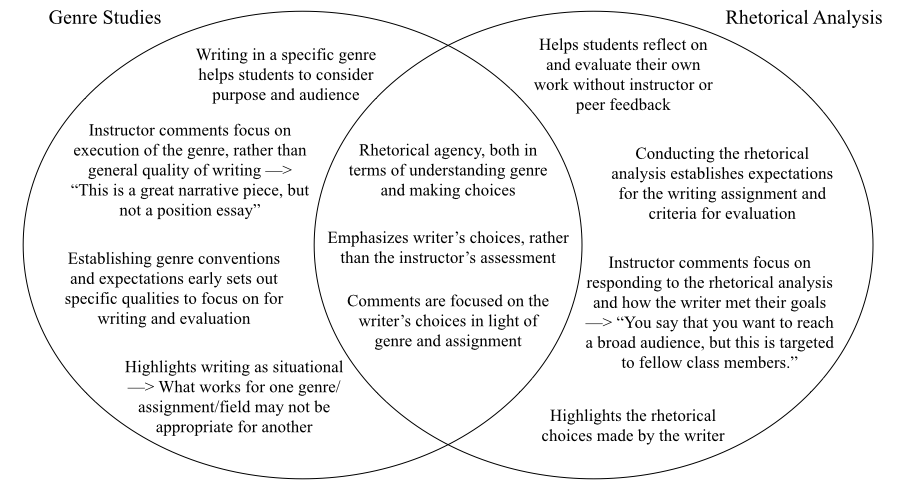One of the major questions about translanguaging your classroom is how to assess student writing. According to a survey of TCU writing instructors (for more visit Why a Translingual Approach?), non-standardized language may or may not affect grades. For the most part, language use affected the grade when it hampered "clarity" and/or did not conform to the expected discourse of the genre. At the same time, nearly an equal amount of respondents noted that they felt conflicted about the tension between academic discourse and students' rights to their own languages. This page proposes some possibilities for translanguaging assessment based on "Beyond Translingual Writing" by Jerry Won Lee (jump to Lee) and my own assessment practices (jump to my approaches).
"Beyond Translingual Writing" by Jerry Won Lee
In the special issue of College English "Toward Writing Assessment as Social Justice," edited by Mya Poe and Asao B. Inoue, Jerry Won Lee presents the argument for "translanguaging assessment." By this Lee means not assessing translingual writing, but "ways in which assessment philosophies can be continually reconstituted in accordance with the principles of translanguaging" (182).
As far as my research goes, this is the only article explicitly about translingual pedagogy and writing assessment in rhetoric and composition scholarship. Lee points out this gap in scholarship and asks "whether the translingual turn aligns with or contradicts the principles of social justice" (175). He begins his article by asking the question that many translingual skeptics might ask: "do we work against social justice aims if we do not teach to and assess using a standardized English?" (175). Lee ultimately counters this perspective by arguing that "linguistic social justice entails confronting the inequitable discursive economies that afford disproportionate amounts of social capital to certain language practices over others" (176, emphasis in original).
For Lee, translanguaging assessment includes three interrelated principles:
- Negotiating linguistic and institutional expertise. Here, Lee argues that writing instructors and institutions must view their positions and assessments as negotiable. That is, we must work to undermine the idea that writers must conform to dominant discourse. In particular, Lee argues that the criteria of "effectiveness" must be negotiable and is implicitly biased toward dominant discourse.
- Individualizing evaluative criteria. In this section, Lee complicates the notion that there are universal assessment criterion. By "de-universalizing assessment criteria [we] remember that different kinds of writing have different values for different students" (185). Put in another way, instructors must be in dialogue with their students about their experiences with and goals for different genres.
- Attenuating the tranlingual-monolingual binary. Finally, Lee confronts the critique that translingualism promotes linguistic tourism put forth by Paul Kei Matsuda (for more about this visit the Learn section). Lee argues that translingual assessment must not blindly privilege the display of linguistic diversity, rather we must resist the false binary of translingual vs. monolingual.
Ultimately, Lee claims that attempting to standardize language use without reflecting on the social implications is a "saviorist expectation that assumes we have a responsibility to enforce some set of norms, such as those of standardized English, on our students" (188).
Click here for Jerry Won Lee's full article.
My Attempts at Translanguaging Assessment
While my courses do not always explicitly discuss translingualism, I have experimented with various forms of writing assessment that move toward Jerry Won Lee's ideal. For the most part, my forms of writing assessment attempt to individualize writing assessment. I provide three examples here: assessment based on genre conventions and rhetorical analysis, grading contracts, and evaluative rubrics.
 Genre and Rhetorical Analysis
Genre and Rhetorical Analysis
For a roundtable on writing assessment at the Northeastern Modern Language Association conference, I presented on my use of genre studies and rhetorical analysis. In my genre based courses at Emerson College, students also wrote rhetorical analyses of their own work at different points in the writing process. By framing my comments and grades on the conventions of genres and student's own goals and assessments in the rhetorical analyses, I hoped to individualize grades and respond to the particular needs of students. While we discussed linguistic difference in these courses, language use was not a specific criterion for assessment.

For more, see my presentation "Using Genre Studies and Rhetorical Analysis to Evaluate Student Writing."
 Grading Contract
Grading Contract
I also use grading contracts to ameliorate the one-way power dynamic of grading. However, recently, I've reconsidered the use of the term "contract," because contracts traditionally privilege those in the upper echelons of the hierarchy. Still, grading contracts can be a way to evaluate students individually, negotiate power, and avoid privileging certain linguistic practices. This grading contract is based on a one commonly used at Emerson College. Again, this contract does not include language use as a specific criterion.
 Evaluative Rubric
Evaluative Rubric
Additionally, I use evaluative rubrics. I developed this rubric for a more prescriptive writing course at Wheelock College that also included a literacy test and the teaching of grammar. While this rubric does include a section about "Language," as per the requirements of that institution, there is room for student choice and for translingual composing. Therefore, I hope this serves as a model for how to include translingual work in programs that are more focused on reproducing traditional academic discourse and/or attempt to only promote Standard Edited American English. This rubric is most useful in evaluating genres with argumentative elements.
